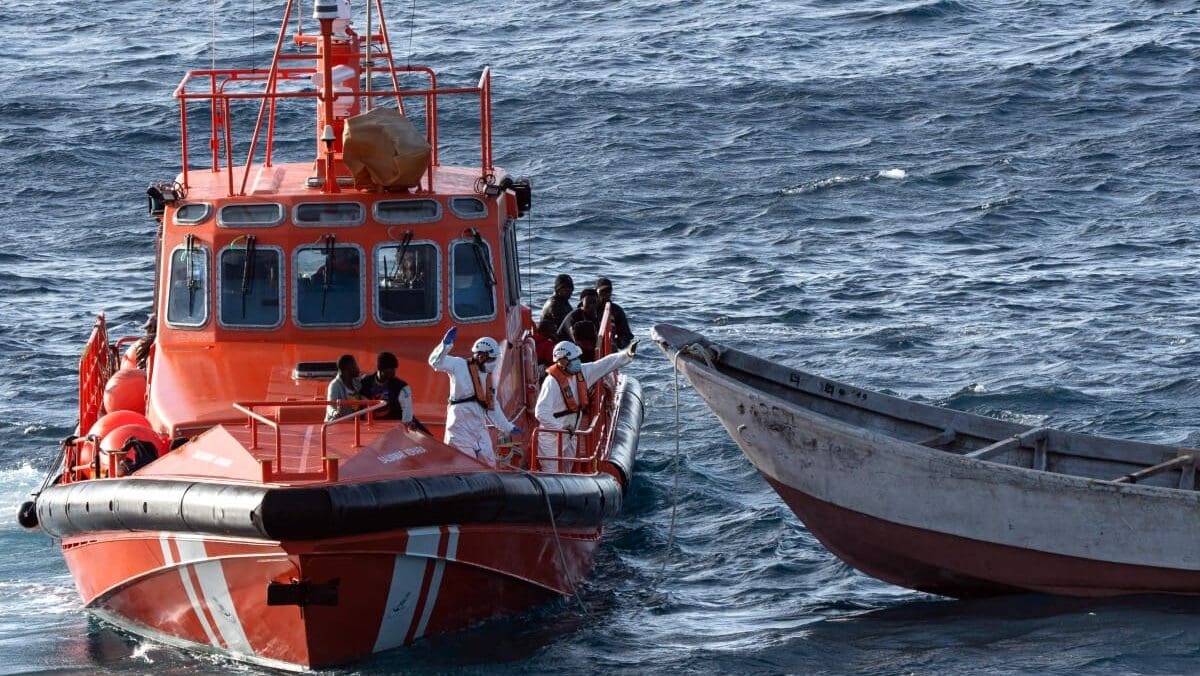
The Spanish Sea Search and Rescue vessel “Salvamar Adhara” secure a towline to a migrant boat drifting without propulsion off the coast of La Restinga port, where they were eventually brought to shore, on the Canary island of El Hierro on August 21, 2024.
Photo: Antonio Sempere / AFP
The number of illegal immigrants deported from Spain has dropped to a new low as the Canary Islands struggle to deal with a growing migration crisis.
According to Interior Ministry figures, reported by El Debate, of the more than 29,000 illegal migrants who have arrived in the islands so far this year, only 3% have been sent back.
On top of this, the ministry estimates that by the end of the year, the total arrivals could reach between 45,000 and 50,000.
One reason for the influx is instability affecting several African countries, causing their citizens to flee. Indeed, the vast majority of migrants arriving by sea so far this year were Malians, Senegalese, Algerians, Moroccans, and Ivorians.
Another is the very low number of deportations. According to Interior Ministry figures, this means that 594 Moroccans were returned out of 4,084 arrivals; 17 Senegalese out of 4,909; five Algerians out of 4,248; six Malians out of 9,899, and zero Ivorians out of 296. Spain has agreements with Morocco, Algeria, and Mauritania for the return of illegal arrivals, but not with Mali.
However, another reason mentioned by the Spanish press is the success of Italian Prime Minister Giorgia Meloni’s migration policies, which have reduced irregular immigration in Italy by 64% this year. In the same period, it has risen in Spain by 65%. In other words, illegal migrants are now looking for alternative routes into Europe, and Spain is a popular target.
Meloni’s plan consists of paying African countries to increase surveillance of their coasts and airports. The aid also encourages them to sign agreements with Italy to take back illegal immigrants. The Italian government has so far paid €5.5 billion to finance various projects in countries such as Morocco, Algeria, Tunisia, and the Ivory Coast.
Last year, a record 39,910 illegal migrants arrived in the Canary Islands; a dramatic increase of 154.5%. If Interior Ministry estimates are correct, even more will arrive this year.
